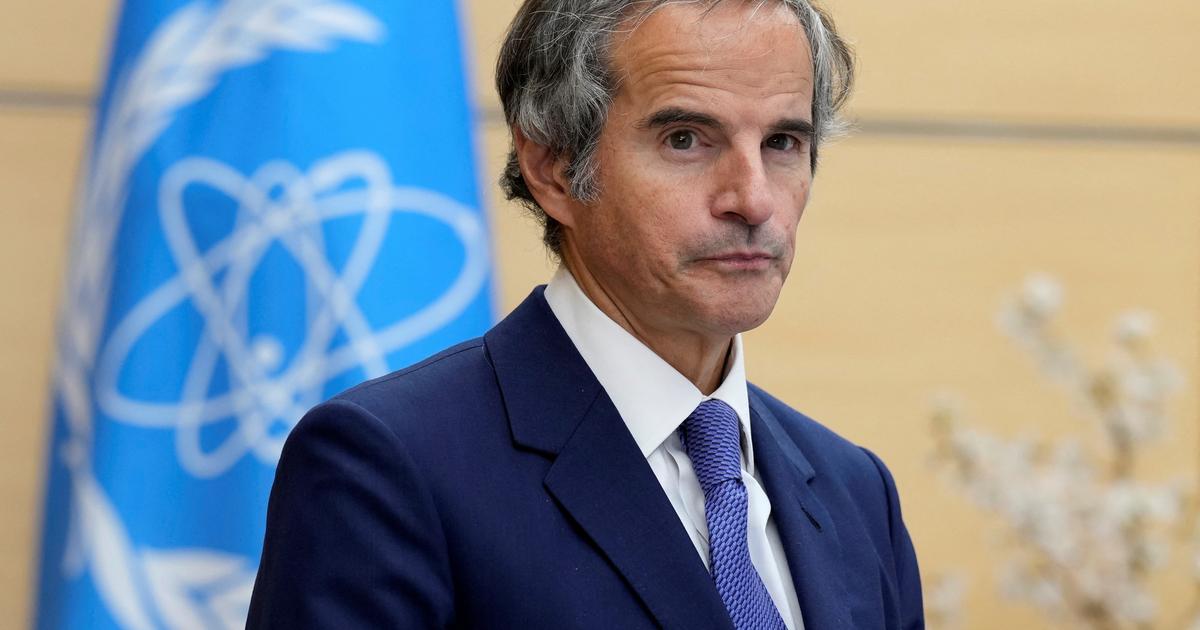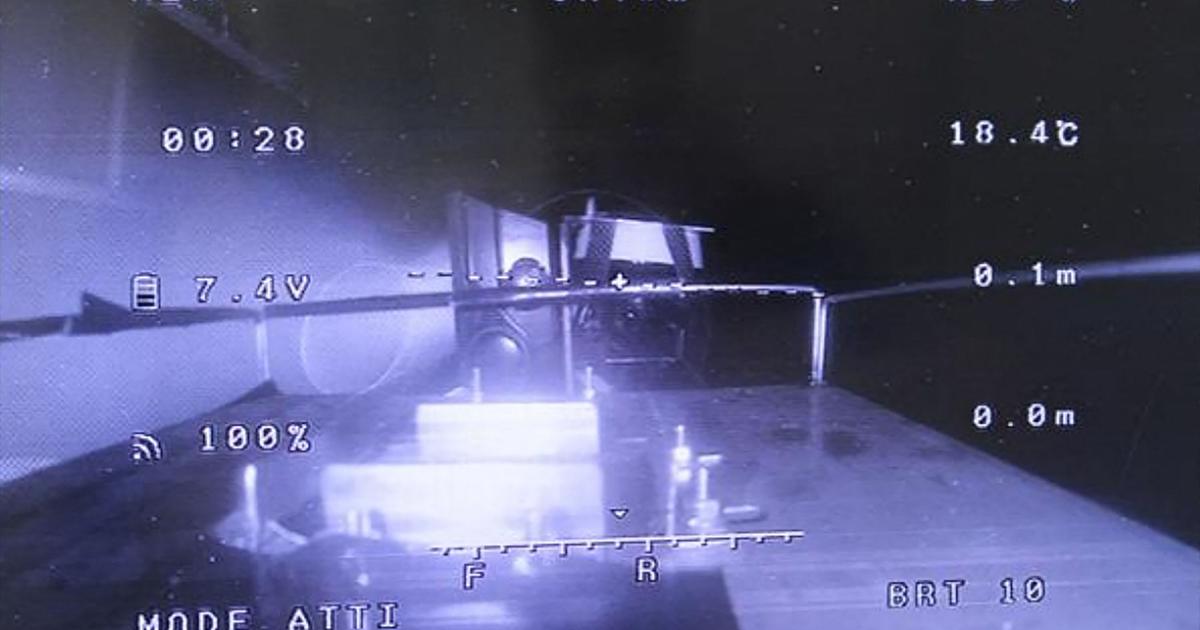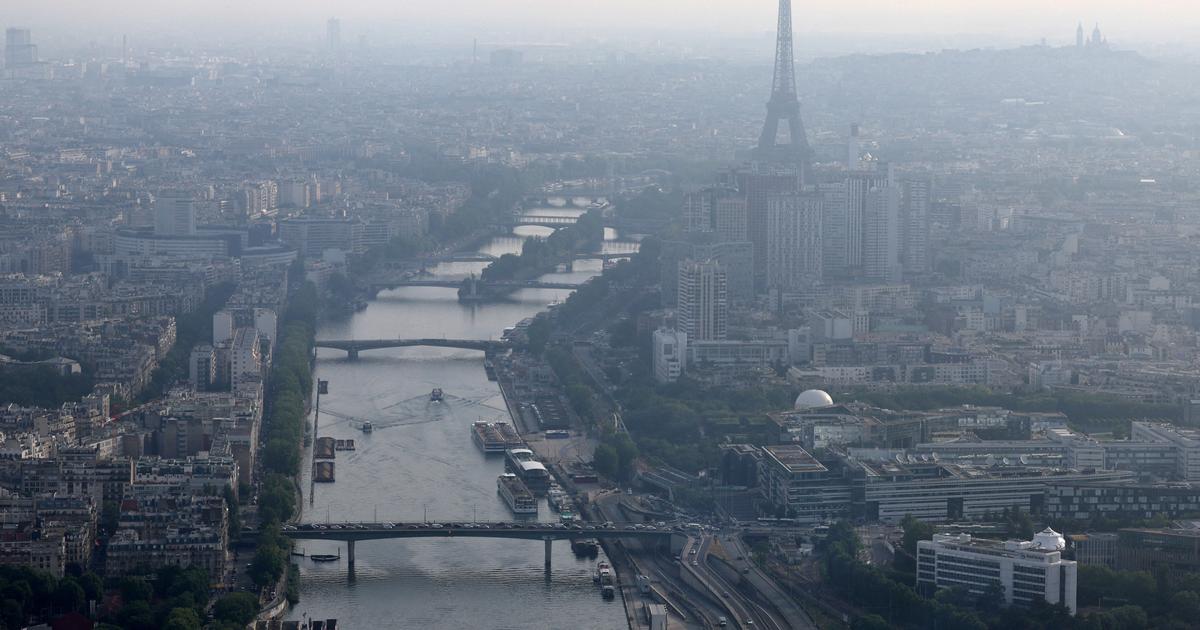Not one or two, but the equivalent of the content of 500,000 Olympic swimming pools will be - after seven years of scientific debate - returned to the Pacific Ocean.
This was announced on Tuesday by the Japanese government, which had to face storage problems for this water.
In total, 1.25 million tonnes of contaminated water are currently stored in more than a thousand cisterns at the plant site which was hit by the giant tsunami in March 2011.
They come from rain, groundwater or the injections necessary to cool the cores of nuclear reactors that melted after the gigantic wave.
This operation, which should not begin for two years, could take decades.
But if the authorities insist that the water will be rejected "after making sure that it is at a level
(of radioactive substances, editor's note)
clearly below safety standards", neighboring countries, fishermen and environmental NGOs are not reassured.
The contents of these tanks have been filtered several times to get rid of most of its radioactive substances, but not of the tritium, which cannot be eliminated with current techniques.
Tritium, from the hydrogen family, is mainly present in gaseous form.
It is found in the air, in water, due to emissions from nuclear power plants, but also naturally in the environment.
It can be dangerous if swallowed or inhaled.
It is he who worries opponents of the Japanese project.
A discharge at safe rates, according to an expert
“It is a compound that goes everywhere, already naturally present in seawater. All human bodies contain it, we breathe it in particular, but we find it especially in cashew nuts.
The most exposed in the world are airplane pilots, because it is also formed during a reaction with the sun, ”recalls Geneviève Baumont, former expert at the Institute for Radiation Protection and Nuclear Safety (IRSN).
She was sent three times to Fukushima to observe the waste management plan and the polluted areas, in particular on behalf of the International Atomic Energy Agency (IAEA).
VIDEO.
Fukushima: 10 years later, she returns to see her abandoned house
The French expert was even consulted by Japanese officials to find out the tritium content of the water discharged at La Hague (Manche), a hot topic that is controversial in France.
“The 1000 Fukushima waste tanks will represent what this site in Normandy discharges in two and a half weeks.
We now find this waste as far as Canada, ”says Yannick Rousselet, in charge of nuclear issues at Greenpeace France.
But also directly in our taps, alert on his side David Boilley.
“The releases of tritium go directly into the rivers of the Loire Valley.
(...) In France, we cannot protest too much ”.
“The rates they imagined dumping in the Pacific were lower than those in La Hague.
Tritium decays over time.
If you have a million particles in the water, you will have 500,000 left over the next 12 years, then 250,000 in 24 years, ”explains the specialist.
For the one who still teaches nuclear safety, the water stored for nearly ten years is already less loaded and will be rejected as their rate decreases.
"There is an extremely low risk that this will impact the fish, everything is controlled and measured before being marketed," she said.
"The risk is low but not zero that fish absorb tritium, which is stored in radioactive water, and grow with it", slice for his part David Boilley, physicist, president of the Association for the Control of Radioactivity in the West (
ACRO
)
Morning essentials newsletter
A tour of the news to start the day
Subscribe to the newsletterAll newsletters
As for the carbon 14 which is present in these cisterns, according to Greenpeace, which fears that it will enter the food chain and damage DNA, Geneviève Baumont recalls "that we are already breathing carbon 14, radioactivity is everywhere".
"The majority of Japanese are opposed to this rejection"
The scientist, who notably monitored the state of health of 250,000 nuclear workers in France, sees another challenge in this controversial decision.
“Everything will depend on the people's confidence in the authorities.
The fishermen were traumatized at the time of the accident, their fish are extremely controlled, ”she recalls.
READ ALSO>
Fukushima: 10 years after the nuclear accident, endless decontamination
“With this decision, citizens are being ignored.
(...) All the polls show that the majority of the Japanese are opposed to this rejection, and it is a position which more broadly reflects the opinion on nuclear power in the country ”, assures Parisian Shaun Burnie, nuclear specialist for Greenpeace Asia.
How to do otherwise?
According to Tepco, the plant operator, this rapid decision is justified by the storage limits for this contaminated water, which could be reached as early as the fall of 2022. False, responds Greenpeace.
“There is an alternative, which is long-term storage.
The
2022
deadline
is wrong, there are storage spaces.
It is unacceptable that this option is not questioned and developed, ”resumes Shaun Burnie who denounces an economic and political decision.
Disposal at sea is indeed the cheapest solution for Japan, reports Usine Nouvelle. Its cost is estimated at 27.5 million euros, when the discharge in the form of hydrogen is estimated at 807 million euros. Even more expensive, the landfill could have required 1.96 billion euros, according to figures from the Japanese government. "Tritium decontamination will always be very expensive from an energy and financial point of view," says David Boilley. Moreover, if we remove the tritium, there will always be other waste… ”.








